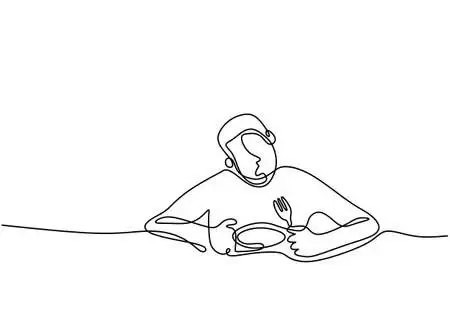 Blog 10.26.2022 What's In A Name? By Thomas Putnam Juliet wondered what difference something is called; it's still the same thing no matter what it is called, right? Maybe. I've read how some authors and playwrights begin writing with a working title and then change it as the work progresses. Sometimes the title may be changed a number of times. Remember in the film (and stage version) of Shakespeare in Love how both Shakespeare and others comment “Good title” upon hearing a title for a play in the works. Over the years it's been fun to hear people get all mixed up with a title when ordering tickets for an upcoming play. Granted, some plays have tricky titles. In college I was associated with two such titles: Oh Dad, Poor Dad, Mamma's Hung You In The Closet And I'm Feelin' So Sad was one. We worked on a number of scenes in acting class and the university produced the full play later that year. Another one is The Effect of Gamma Rays on Man-in-the-Moon Marigolds. The play itself was a bear to experience—intense, sad, painful—but the title just trips off the tongue, doesn't it. Looking back over our 30-some seasons we've had our share of challenging titles. There were some longer ones that weren't crazy, but long nonetheless, thus open for some fumbling. Consider I Never Saw Another Butterfly, or—possibly our longest--The Misadventures of a Dozen Kids From the Other Side of the Tracks. I like the symmetry of those with three elements: A Bird, A Fish, and A Boy from the Stars. Or Love, Sex, and the I.R.S. And what about I Love You, You're Perfect, Now Change. We produced 33 Variations and The 39 Steps in the same season; don't think that didn't cause some mash-ups. Some include a new sort of word: Last Train to Nibroc. What the heck—or where the heck—is Nibroc? And Dancing at Lughnasa. What or where is Lughnasa? And another The Madwoman of Chaillot. What or where is Chaillot? And how in the world is Nibroc and Lughnasa and Chaillot pronounced? There were thoughts that Underneath the Lintel might have something to do with soup. And that Miracle on South Division Street might be a sequel to that Christmas movie. And that Velocity of Autumn might be about race cars. More recently we had some fun titles like The Lifespan of a Fact, and Dead Man's Cell Phone, and Into the Breeches. Vanya and Sonia and Masha and Spike offered a whole lot of iterations. Perhaps the most mangled was The Curious Incident of the Dog in the Night-time. And soon we have Foolish Fishgirls and the Pearl. The phones are going to start ringing with requests for reservations and I'm sure we're going to get some wonderful paraphrasing. Maybe I'll write a blog about it.
2 Comments
 CANADA’S STRATFORD FESTIVAL CELEBRATES “A NEW BEGINNING”! By Larry Biddison And HG is also celebrating! After a two-year pandemic hiatus, HG’s theatre trip to Canada’s Stratford Festival resumed on October 7-9 this year. As former trip coordinator, I’m especially happy that Thomas Putnam committed himself to this vital cultural experience. This is the umpteenth hat he has chosen to wear, and I don’t know how he does it. In addition to directing and acting in plays, conducting the HG choirs, scheduling the season’s plays and concerts, he also gardens, raises goats and chickens. Now the Stratford Trip, too! On board the Benedict’s bus Friday morning were 37 fanciers of world-class theatre, more than a third of them first-timers. The others were happy to relive the Stratford experience, many of whom have been “regulars” since 2000. This year’s two-night, three-play weekend offered HG’s usual mix of a comedy (Moliere’s The Miser), a tragedy (Shakespeare’s Hamlet), and a musical (Kander & Ebb’s Chicago). Participants stayed in a centrally located vintage hotel (the same lodging I used for my Mansfield University students between 1988 and 1998). This year’s excursionists spent their “free” time sightseeing, shopping, sampling local foods and beverages, walking scenic paths, and enjoying the swans on the Avon River. Our Benedict’s bus driver shuttled us to and from the theatre for all three plays. We saw all of them in the Festival’s largest venue, the Festival Theatre, which incorporates the original 1953 stage. The 2022 season’s other seven offerings were performed in the other three venues: The Avon, the Studio, and the brand-new Tom Patterson. Unfortunately, our tight schedule made it impossible to tour this magnificent piece of architecture, much less see any of the three plays being performed there. (Since the Stratford Festival is a residential repertory theatre company using its resident actors in several plays, Colm Feore, who had the lead in the Festival Theatre’s The Miser also had the lead in Richard III in the Tom Patterson theatre the next day.) After getting settled into our rooms at the Windsor Hotel on Friday, several of us walked across Albert Street to have a festive meal at one of Stratford’s iconic pubs, Bentley’s Bar and Restaurant. (We returned to Bentley’s after the show for dessert and conversation about The Miser.) The number and variety of eating places always amazes first-timers. So much that is “not like at home”! [NOTE: HG is hosting a day trip on December 17 to the SHAW FESTIVAL in Canada's Niagara-on-the-Lake. Call for reservations. The annual autumn trek to Stratford is already in the planning stages! We'll be traveling in late September or early October. Hope you can join us in these wonderful experiences. And thanks to Larry for pioneering and maintaining these trips for many years!] With our stash of special mint smoothies to share with family and friends, we boarded the bus Sunday morning for the return trip. The mood I sensed on the bus was one of satisfaction. All’s well that ends well!  Parenthood is Very Rewarding by Thomas Putnam Toward the end of GRAND HORIZONS, the father says to his wife (who has announced she wants a divorce), his eldest son, and his daughter-in-law, “Parenthood is very rewarding.” This comment comes after nearly two hours (representing a full week) of upheaval as his family seems to be falling apart. It's debatable whether this man, Bill, is being completely genuine or is he being sarcastic or snarky or something less than genuine—just trying to say the right thing and not really believing it. It doesn't appear in the action of the play that Bill finds parenthood to be very rewarding. He really doesn't have much to say about anything. He kind of goes with the flow of what he thinks might make people happy. Yet the oldest son reviews all the special events he experienced in his life: “every Christmas. Every birthday. Every baseball game..Every family photo, every family trip, every hug, every lesson learned, take your pep talks, your matching plaid pajamas.” These were all part of the fabric of his growing up with two parents who provided for him and kept him safe. Yet, because of some family secrets now revealed, he sees all these family activities/celebrations as “bullsh!t.” He can't trust that these events were real or worth anything. There is a great deal of exploration of parenthood in this play and I could quote a number of lines that help to inform that line towards the end of the play: “Parenthood is Very Rewarding.” But I've just read today some thoughts that could also inform our broader exploration of parenthood. “We have made mistakes with our children, which will undoubtedly become clearer as they get old enough to write their own books.” This from the author of Please Don't Eat the Daisies. Remember Jean Kerr? The book is charming and fun but I'm wondering in her honest moments could she truly say what she was doing with that wild bunch of kids was rewarding. “Yes, Mother...I can see you are flawed. You have not hidden it. That is your greatest gift to me.” Bill and Nancy in this play could have learned some wisdom from Alice Walker's mother. Whether Bill and Nancy tried to hide their flaws, or whether their sons just couldn't see them for whatever reasons, the boys did not see that their parents are real, whole people—flaws and all. “It's a wonderful feeling when your father becomes not a god but a man to you—when he comes down from the mountain and you see he's this man with weaknesses. And you love him as this whole being, not as a figurehead.” Hmmm, I wonder if Bess Wohl read this quote of Robin Williams when she was writing the play. So where are we. Don't kids need to see their parents as gods for a while; as beings that can do no wrong and can protect them? Then, when they are ready to write their own books...that wonderful realization that “hey, these ordinary, human beings did a damn good job of protecting me and keeping me safe and taking me on family trips and watching my baseball games and giving us all matching pajamas.” They're not divine beings at all; just flesh and blood who were doing their best.  WE LISTEN AND ARE FED By Thomas Putnam This weekend has been one big multi-course banquet for me. I've had the great good fortune to immerse myself in some of the great loves of my life. I was able to spend a bit of time with a few members of my family. I spent much of the warm-ish sunny day on Saturday painting a much needed railing—so I was at home, surrounded by light and color and sunshine and peace. I relished in the opening of our production of Grand Horizons, able to interact with a talented and very nice cast and crew and two enthusiastically encouraging audiences. Yesterday I had the great good fortune of spending the afternoon listening to the glorious sounds of Peggy Dettwiler's MU choral groups. In the midst of the concert, I directed ten talented and committed kids singing a Moses Hogan spiritual. Quite frankly, I could die today and be supremely happy. I could write a blog about all of the above, but primarily in this one I'm focusing on the great power I find in good choral music. The concert yesterday was one of those thin places the Celtic Christians speak of; the place where the division of earth and heaven, physical and spiritual, here and everywhere is so thin as to be imperceptible. It happens a lot to me with choral music that simply transports me, or simply melts everything else away. Peggy Dettwiler invited our HG Youth Ensemble—ten singers—to sing a song with the Festival Chorus and also to sing a song on our own. I don't remember that happening before, and it was an incredibly gracious offer, one of which I heartily accepted. Our numbers are few this year—Covid seemed to take the wind out of our sails—but this group is committed and loves to sing. It was an honor and great joy to sing in this concert. The MU Concert Choir sang a song never before performed. It was commissioned in memory of our friend Keith Cooper who died last year. The text is based on a poem by Rumi, concluding with these words: Oh, music is the meat of all who love, Music uplifts the soul to realms above. The ashes glow, the latent fires increase: We listen and are fed with joy and peace. Good choral music is one of the great nourishers of my life. I am grateful I have the opportunity to direct the HG Choral program and offer the opportunity to kids to explore rich music. I am grateful for Keith and Hilma Cooper who were/are great supporters of the arts. I am grateful for Peggy Dettwiler for the incredible opportunities she has and is providing for thousands of young people—and me—to experience those indescribable thin places. We listen...and are fed...with joy and peace.  GRAND OPENING NIGHT FOR GRAND HORIZONS by Barbara Biddison It was a good crowd , young adults to folks in their 80s, all ready for this new experience with Hamilton-Gibson. They listened attentively and sometimes it was so quiet in the audience that you could hear the figurative pin drop. And often they laughed heartily too as this family tried to work its way through a situation that no one had expected. The play opens with some business, actors moving about with clear purpose but no dialogue, and the audience immediately understood that "you're supposed to pay attention to this." I think they could tell that they were in for a good story, and they settled in to follow it. This is some of the finest acting that I have seen on the Hamilton-Gibson stage, and in the past 30-some years I have seen some mighty good acting here. It is easy to become involved with these real people in this story as it is revealed to us. I've been with this play, drilling lines and then watching the whole thing come together for about three months, and it still has my complete attention in its ready-for-the-stage form. It's that rich. For opening night we had a small but very interested crowd in the pre-show gathering. I expect the crowd to be larger as the word spreads. (And those people do get to keep the "really good seats" of their choice for the show.) It is fun to meet some of the actors before-hand. There was no post-show opportunity for Friday night because we had to party in the traditional opening-night fashion., but there will be both pre- and post-show gatherings for the remaining shows in this run. I remember post-show opportunities for Thomas's one-person show EVERY BRILLIANT THING and it was such a memorable time after every show. I expect that to be true for GRAND HORIZONS as well. I hope to see you all there!!! for this Saturday and next week Friday, Saturday, and Sunday matinee!!  A TRUTH BOMB OF A PLAY by Thomas Putnam It's a comedy. The NYT critic said it is a “clever truth bomb of a play.” Clever, yes; there are so many very funny moments. It explores family connections in creative, often surprising, ways. So...”truth.” And there are things exploding throughout. So this critic was spot on: a “clever truth bomb.” And there's more. The critic continues claiming this play is a “powerful argument for the full humanity of women in our culture—a matter that's not as settled as we might like to think.” It's difficult to boil down to the essence of this play, but I think at the heart, with all the veins of the other relationships feeding into it, what we have is a close look at a woman who needs to live, fully. For whatever reason, this woman has not been offered the opportunity to do so. Or maybe the opportunity was offered and she didn't—or couldn't—make the most of it. There are three non-family characters in this story. One of them is the daughter-in-law which could be both family and non-family. The other two are...well...they are non-family and I'm not going to reveal how they play into the story; but all three have very keen, objective views of the situation in the family. When you see the play, pay attention to what these three—Jess, Tommy, and Carla—have to say about the dynamics of the family. One observes that perhaps the family members don't really view Nancy—the mother—as being alive. Jess also notes a bit later that Nancy has “articulated something she wants [and here's the real kicker] for maybe the first time in her entire life.” Remember, Nancy is in her 70's! Carla and Tommy both offer poignant musings about this divorce after 50 years of marriage. They each re-frame the situation and see the positive in a—for the sons, at least—negative event. There's lots to chew on in this play that is billed as a comedy while “quizzically pondering issues of love and marriage.” I hope you can join us.  CAN WE TALK? By Thomas Putnam We began HG back in the summer of 1991. We cleaned up an old farm implement garage, borrowed some folding chairs, purchased some very used stage lights and system, and off we went. In preparation of that first performance of A Miracle Worker a number of us spent long hours, way into the night, crawling up and down ladders and figuring out how we were going to hang lights and cable from the high I-beams. During many of those nights, Rob Fitzgerald and I would crank up the radio (remember them?) and groove. One song that was released that summer was “Let's Give Them Something to Talk About.” It seems like yesterday that we danced and sang along with Bonnie Raitt. We were beginning something new and we were excited to give all sorts of people plenty to talk about. Fast forward to 2009. As we worked on The Laramie Project we were challenged and stirred with Moises Kauffman's encouragement to envision every production of this play as an open door for dialogue. Such a play lends itself to, indeed begs for, honest, open dialogue. True listening to the “other.” Offering thoughtful responses. Being open to the possibility of change. Walking around in another's skin for a while. We've had talk-backs for a few of the shows we've produced since then. One that has impacted me a great deal is Every Brilliant Thing. The open, often painful, stories that audience members were courageous (or desperate) enough to share with total strangers...but strangers who had a shared experience while watching the play...were powerful. Empathy-building. So now we're ready to open a play about family connections. And someone wants a divorce. After 50 years of marriage. One of the sons cries out in desperation: “You can't end it without a conversation.” Grand Horizons begs for conversation. Family connections are something each of us have experienced. Those connections may have been solid and nourishing and they might have been damaging and hurtful, or absent. We're offering opportunities for dialogue both before and after each performance (except following the opening night when we have a reception for all.) I encourage you to join us for these opportunities for listening and sharing and exploring and working through-ing and empathy-building. Pre-show talks are 45 minutes before the show (and you have a jump in picking out your seat.) They'll last about 20 minutes, at which time you can get a snack and chat. The Post-show talk-backs will begin soon after the bows and will last as long as people want to talk. We've got plenty to talk about, Bonnie. 
I have been asked from time to time what my favorite play is that I've worked on. The question reflects our culture's need, perhaps, to quantify and rate everything. It's like a favorite food or color or piece of music or person or place; I think trying to determine a #1 of any of these diminishes the opportunities to relish in all that we're offered to enjoy. In the case of my favorite play (just like color, or place, or music) the one I'm currently working on is the one I'm embracing, not as a favorite, but simply welcoming the opportunity to be stimulated and nourished and challenged and comforted and... GRAND HORIZONS is the current meal I'm chewing on and savoring. I'm challenged by the task of both directing and acting. (I say I'm not going to do this again because it's just too tricky to do so and neither the acting nor the directing get full attention; but here I am once again.) Thankfully I've had two sets of eyes that have helped tremendously in the process. Noyes Lawton has been assisting with the direction—as well as with the set building. He's directed some of the rehearsals when I've been unable to (Covid and other challenges) as well as sitting in the audience and offering insight . Barbara Biddison has been a great help in both running lines with various characters as well as viewing rehearsals from the audience side and offering her perspectives. The cast of this show is remarkably astute and eager to dig into this script and these characters and how they relate to the others. I really think each of these actors could direct a play well as evidenced by their comments. It's clear they have explored and continue to explore these characters and situations. I've had in-person as well as messenger and text conversations with each of them: Sarah, Tim, Alex, Jeremy, Kathryn, Angel. As I've quoted often before, Lauren Gunderson says that theatre's superpower is empathy. Theatre offers an opportunity to truly crawl around in another's skin and see the world from her/her/their perspective and learn from that differing perspective. This provides an immeasurably valuable opportunity for growth and acceptance and understanding. Where else can you get such a chance? As our culture becomes more and more polarized, the need for understanding and tolerance and just plain ol' getting along with others is crucial. I know the audience does not have the hours of living with these characters as the cast has, but the simple act of actually attending a performance of a play that involves characters that are in situations different from your own is a huge step in being open to the possibility of growth and understanding and tolerance. I'm really looking forward to our pre-show talks as well as our post-show talk-backs. See you soon...and we can chew together and enjoy the meal.  THE BACK PORCH GANG by Barbara Biddison Every Sunday I read the Delivered Fresh Blog. This Sunday the writer contemplates what the front porch decor says about the people who live there. Well, my front porch is too small to deliver any such messages, but the back porch.....ah, there lies a story or two. A real story. The bits and pieces of GRAND HORIZONS, the Hamilton Gibson adult comedy about to open in two weeks, have been floating about out there around the back porch. We've been running lines, memorizing,--I held the script while two or three of the actors said the words out-loud. Sounds simple, right? It is quite a demanding process actually. First we read through a scene using the script, then we try to deliver some of the lines without looking at the script, and then comes the time to "Put down your script," Often just this part takes a few weeks or a few months. At any rate, the play has moved to the Warehouse Theatre now for rehearsal. But I wonder if some of those lines are still in the porch air.... Why rehearse on someone's back porch? Mostly because it offers good "protection" during covid times. It is, obviously, outside, and there is plenty of space between chairs. Though we don't rehearse like that when someone has an active case, confirmed by testing, we do exercise caution just because it is smart to do so when the virus is about. So perhaps the words of the 50-years-married Bill and Nancy, and the not-a-floozy Carla are still out there, floating around, waiting for the opportunity to tell their story on the Warehouse stage.  JUST WHAT IS THE BLEEP-ING ISSUE? By Thomas Putnam I was listening to an interview on NPR last night and throughout there were “bleeps” and sometimes even a few “bleeps” in one sentence. From the context I could surmise what word was being bleeped out and was reminded of some discussions with the cast and crew of GRAND HORIZONS. We have discussed whether we think some people will be offended by the language and descriptions in the script of this very funny and thoughtful play. One cast member indicated they knew many people whom she thought would be offended. The question I've been asking in this regard is “Why?” What is it about certain words (or descriptions of certain acts) that causes offense? In the case of certain words, is it that we have been brought up to believe that particular words are inherently bad or are so crude that civilized people don't utter them? Historically we could have gotten our mouths washed out with soap if we were caught uttering certain words. So, who decided which words were mouth-washable worthy? I remember sometime in fifth or sixth grade that John Hershey who lived down the block from me treated me to a long list of words that had never been uttered in my household. He was quite proud of being able to rattle them off, and I'm not sure if he expected me to hold him in higher esteem for being so “grown up” or what. Maybe he needed to prove his worldliness due to the fact that he was a P.K. I don't use—at least not often—the main word that is bandied about fairly frequently in Bess Wohl's comedy GRAND HORIZONS. I seem to have used it (with all of its multiple parts of speech iterations) more often in the past few years than I have in my whole life, but I'm increasingly more puzzled why we are offended so much by it. Here's a Googled explanation: “The act of taking offense, or feeling offended, often occurs due to an experience of negative emotions. These negative feelings and emotions are often caused by a word, action, or statement that conflicts with our expectations and what we believe to be the right behavior, in a moral and acceptable sense.” Moral? Some of the most “moral” people I know use words that many would find offensive. I think the latter concept above is perhaps more to the point: “a word, action or statement that conflicts with...what we believe to be the right behavior in an acceptable sense.” Our own constructs of what we deem acceptable. I grieve that some people will not experience the joy and laughter and thoughtful explorations that are found in this play, due to feeling like it will be offensive and consequently not attend. I hope people will come regardless and join in the talk-backs following all but the first performance. I simply don't know recently what people will find offensive: divorce, certain bleep-ing words, a description of a particular sexual act, a kiss (does it depend on who is doing the kissing and with whom?) I remember that in the play THE MIRACLE WORKER the aunt of Helen Keller cannot use the word “leg,” and uses instead “a lower extremity.” I remember my mother saying that until she was in high school she was not allowed to use the word “pregnant.” I'm not trying to convince anyone to change their speech habits/patterns or to be less sensitive to what conflicts with what they believe to be the right behavior in an acceptable sense. I'm simply continuing my dialogue regarding the question “What is the bleep-ing issue?” I ask this not in a snarky way, but in a genuinely interested way. I hope to see you at the show...and let's talk. |
Archives
July 2024
|
|
Hamilton-Gibson Productions
Providing opportunities for people of all ages to enrich and empower their lives through community performing arts.
OFFICE
29 Water Street, Wellsboro, PA 16901 PHONE 570-724-2079 |

 RSS Feed
RSS Feed